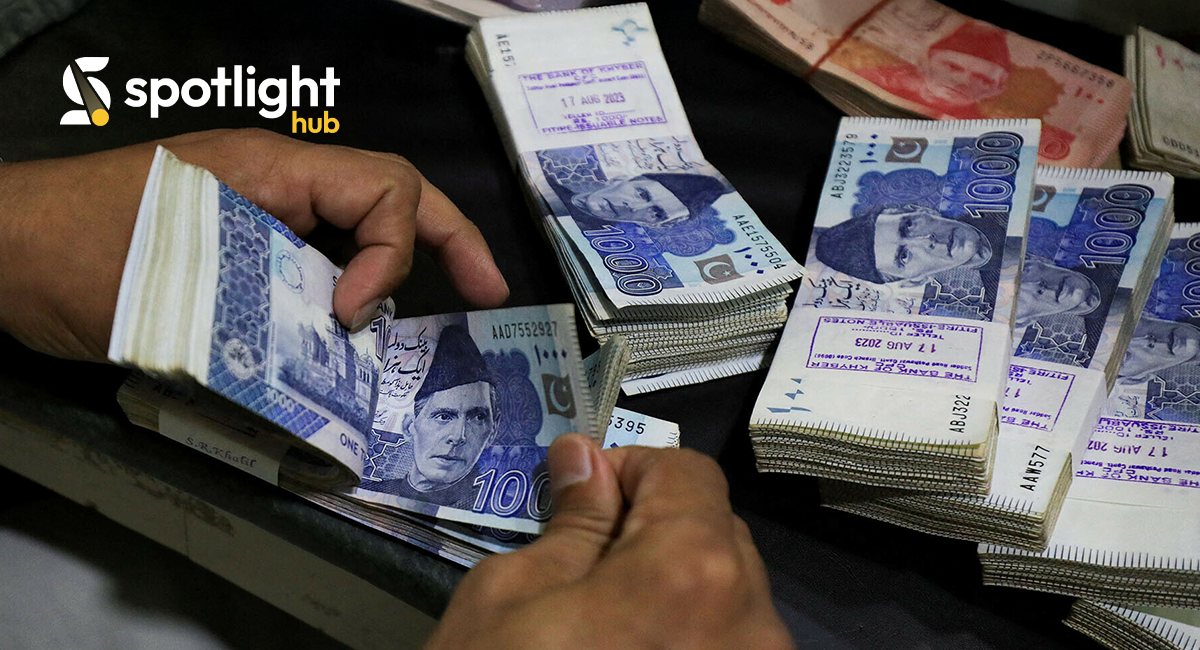Pakistan’s central bank has paused interest rate cuts, keeping it at 12% amid rising inflation and economic pressures. This move aims to balance growth with inflation control, impacting businesses and consumers alike.
With high food prices, energy costs, and a struggling rupee, the decision raises questions about its effects on daily life and the broader economy. The central bank is now maintaining the interest rate, it’s important to understand why this pause matters and what it could mean for everyday people.
What Does It Mean to Pause Interest Rate Cuts?
When a country’s central bank lowers interest rates, the idea is to make borrowing cheaper. This can help businesses expand and consumers spend more, stimulating economic growth. But when inflation is high, keeping rates low can lead to even more inflation, which means things get more expensive.
By pausing rate cuts, Pakistan’s central bank is signaling that it’s not ready to make borrowing cheaper just yet. Instead, they seem focused on ensuring that inflation doesn’t spiral out of control.
However, this decision also means that loans and credit will stay expensive for the time being. For businesses and consumers, this could mean limited access to affordable financing, putting a strain on growth and personal budgets.
Why Has the Central Bank Taken This Step?
There are a few reasons why the central bank decided to keep rates unchanged at 12%. Let’s break it down:
- Inflation Control: Pakistan has been grappling with high inflation for a while, especially in the food and energy sectors. The cost of essential goods has skyrocketed, and the central bank needs to curb inflation without choking economic activity altogether.
- Currency Instability: The Pakistani rupee has experienced significant fluctuations against the dollar. A higher interest rate helps attract foreign investment, which can stabilize the currency and ease pressure on Pakistan’s balance of payments.
- International Pressures: Pakistan’s economic outlook is heavily influenced by international factors, such as global commodity prices and supply chain disruptions. The central bank is taking a cautious approach to ensure it doesn’t worsen the situation by making borrowing too easy when the economy is under pressure.
The Impact on Businesses and Consumers
This decision impacts both businesses and consumers, who are facing different challenges in the current economic environment.
- For Businesses: Small and medium-sized enterprises (SMEs) in particular may feel the pinch. With interest rates remaining high, borrowing money to expand or invest in new projects becomes more expensive. Many business owners might hold off on taking out loans, opting to wait until conditions improve. This means fewer business expansions and job opportunities in the short term.
- For Consumers: High interest rates can also affect consumers who are looking to finance big-ticket items like cars or homes. With higher rates, monthly payments become more expensive, making it harder for individuals to afford loans. Additionally, inflation continues to strain household budgets, with many Pakistanis finding it difficult to manage the rising cost of living.
How This Affects the Economy in the Long Run
In the short term, Pakistan’s decision to hold interest rates steady might feel like a burden, but it could help stabilize the economy in the long run. By tackling inflation and stabilizing the currency, the central bank is laying the foundation for future growth.
However, it is a delicate balancing act. If inflation continues to rise, there could be greater pressure to raise interest rates, which could further slow down economic activity. The challenge for Pakistan’s policymakers is to find a way to stimulate growth while also controlling inflation.
If the central bank raises interest rates too much, it could have the opposite effect, stifling business investment and personal spending. On the other hand, if inflation remains unchecked, the economy could continue to face even more difficulties.
The Balancing Act: Growth vs. Inflation
The central bank is stuck between a rock and a hard place. On one hand, there’s a need to stimulate economic growth, especially after the COVID-19 pandemic’s impact and the ongoing challenges faced by businesses. On the other hand, unchecked inflation could lead to further economic instability, making it harder for ordinary Pakistanis to afford basic goods and services.
To help maintain a healthy economy, the central bank needs to find a balance between lowering rates to encourage growth and raising them to keep inflation in check. This is no easy task, and much depends on external factors like global oil prices, foreign investment, and domestic production levels.
The Bigger Picture: Economic Recovery and Future Challenges
Pausing interest rate cuts is just one piece of the puzzle. For Pakistan to get back on track, a more comprehensive approach is needed. This includes increasing domestic production, improving exports, and addressing the structural issues that continue to hold back the economy.
While the central bank’s decision may help stabilize things in the short term, the real test will come when Pakistan faces its next wave of economic challenges.
What’s Next for Pakistan’s Economy?
Pakistan must stay focused on long-term economic recovery. While the pause in interest rate cuts offers temporary relief, structural reforms, investment promotion, and export growth are crucial.
Businesses must adapt to high borrowing costs, and consumers to inflation. With the right policies and international support, Pakistan can work toward a stable and prosperous future.
What Does This Mean for You?
The central bank’s decision to pause interest rate cuts affects both individuals and businesses in Pakistan. While aimed at controlling inflation and stabilizing the economy, it also brings some challenges in the short term. Here’s what this means for you:
- Higher Loan Costs: Borrowing for big purchases like homes or cars will remain expensive.
- Tighter Budgets: With inflation still high, daily essentials will continue to strain finances.
- Slower Business Growth: High borrowing costs could slow down business expansion and hiring.
- Potential Future Stability: If inflation is controlled, the economy could stabilize, benefiting everyone in the long run.
In the end, while this pause brings short-term challenges, it’s part of a larger effort to stabilize Pakistan’s economy for the future. The impact on you will depend on how well these measures manage inflation and support growth down the line.










